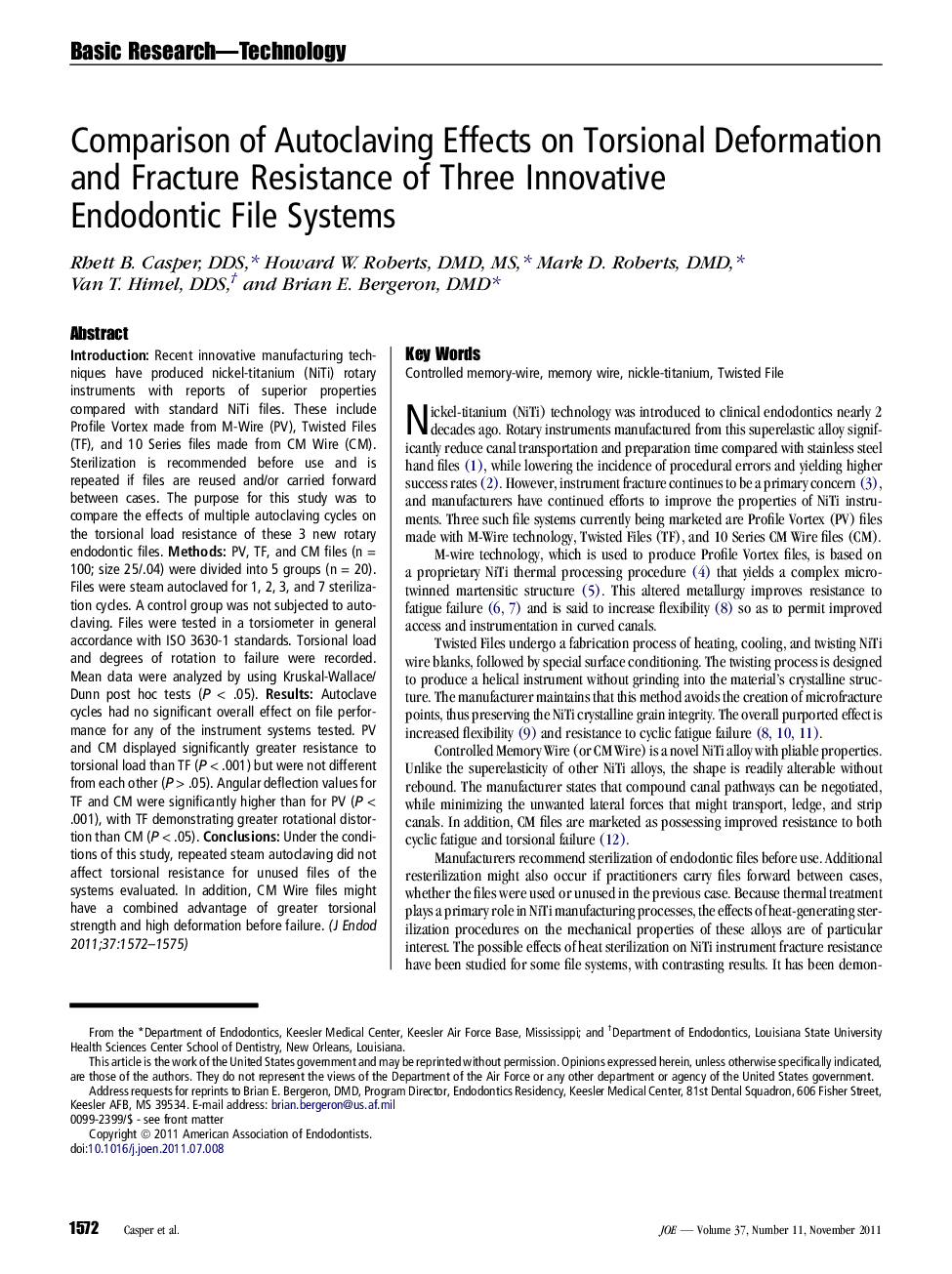| Article ID | Journal | Published Year | Pages | File Type |
|---|---|---|---|---|
| 3148873 | Journal of Endodontics | 2011 | 4 Pages |
IntroductionRecent innovative manufacturing techniques have produced nickel-titanium (NiTi) rotary instruments with reports of superior properties compared with standard NiTi files. These include Profile Vortex made from M-Wire (PV), Twisted Files (TF), and 10 Series files made from CM Wire (CM). Sterilization is recommended before use and is repeated if files are reused and/or carried forward between cases. The purpose for this study was to compare the effects of multiple autoclaving cycles on the torsional load resistance of these 3 new rotary endodontic files.MethodsPV, TF, and CM files (n = 100; size 25/.04) were divided into 5 groups (n = 20). Files were steam autoclaved for 1, 2, 3, and 7 sterilization cycles. A control group was not subjected to autoclaving. Files were tested in a torsiometer in general accordance with ISO 3630-1 standards. Torsional load and degrees of rotation to failure were recorded. Mean data were analyzed by using Kruskal-Wallace/Dunn post hoc tests (P < .05).ResultsAutoclave cycles had no significant overall effect on file performance for any of the instrument systems tested. PV and CM displayed significantly greater resistance to torsional load than TF (P < .001) but were not different from each other (P > .05). Angular deflection values for TF and CM were significantly higher than for PV (P < .001), with TF demonstrating greater rotational distortion than CM (P < .05).ConclusionsUnder the conditions of this study, repeated steam autoclaving did not affect torsional resistance for unused files of the systems evaluated. In addition, CM Wire files might have a combined advantage of greater torsional strength and high deformation before failure.
